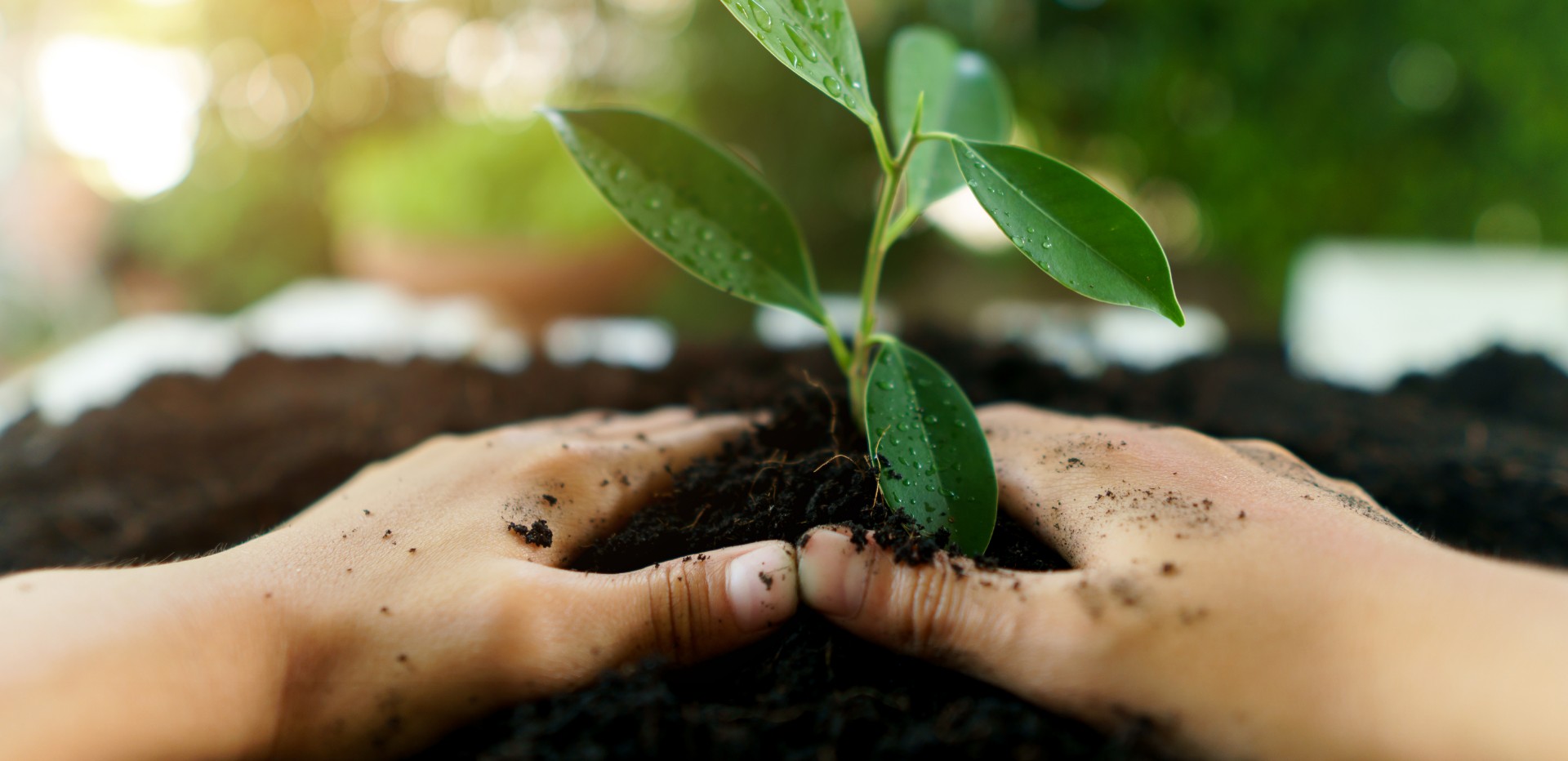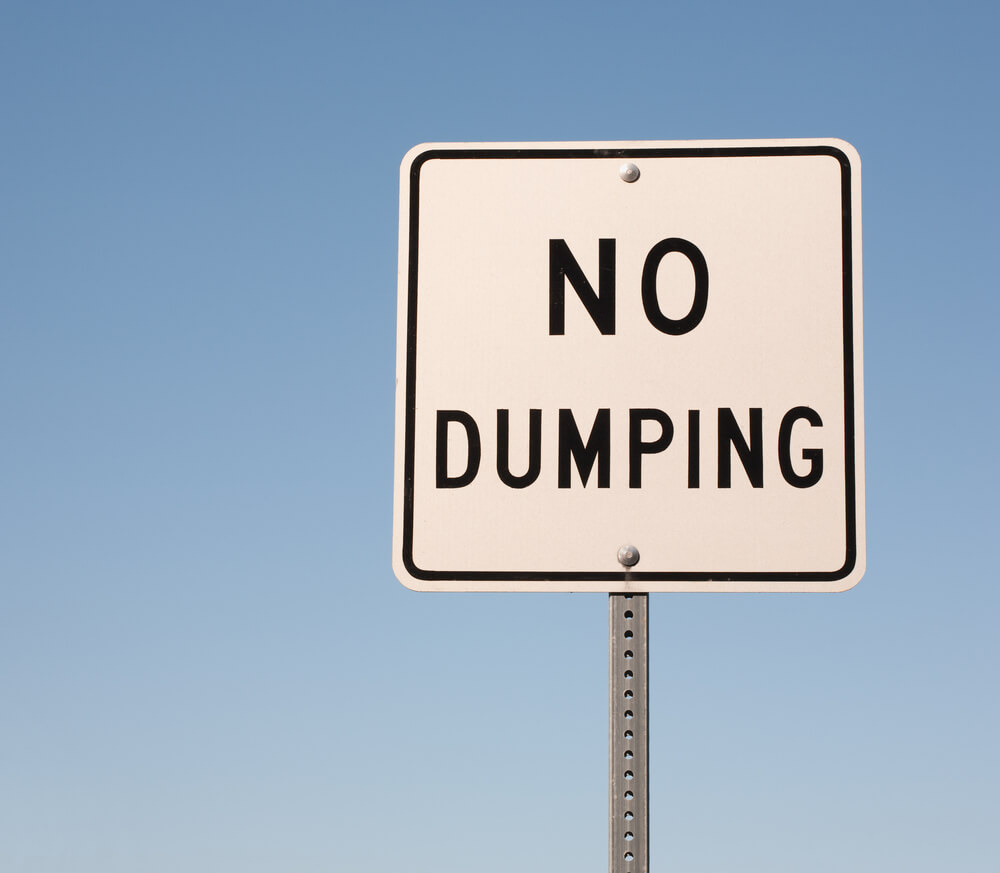As Earth Day approaches, we at Texas Disposal Systems find ourselves reflecting on how the annual worldwide event has evolved and its role in environmentalism in the 21st century.
The first Earth Day, which was launched in 1970, was a result of an emerging consciousness in the 1960s, as people started to become more aware of humans’ detrimental impact on the environment. The event showed bipartisan support, aligning individuals and groups that were often at odds with one another, with people taking the streets and protesting against neglectful and harmful approaches to the environment.
Earth Day is now the largest secular observation in the world, with over one billion people celebrating each year. While Earth Day celebrations may look different this year with the pandemic still looming, it’s crucial that we don’t overlook the event’s true meaning. With accelerated climate change and the rapid extinction of species as their habitats deteriorate, it’s more dire than ever that we be mindful of our impact on the environment. This is why we urge you to treat every day as though it’s Earth Day.
By making small changes to your home or day-to-day habits, you can significantly reduce waste and the release of harmful chemicals. Not only do many of these shifts benefit the environment, but they also benefit your wallet.
Here are 11 ways to reduce your impact on the environment, making Earth Day an everyday celebration:
1. When possible, leave your car at home.
Time and time again, you’ll see a recommendation to cut down on the amount of time you spend in your car when looking for ways to make more sustainable choices. That’s because it’s one of the easiest things you can do to reduce your carbon footprint! Cutting down your drive-time can reduce your carbon footprint by thousands of pounds annually.
As a result of the pandemic and stay-at-home orders, people have driven much less over the past year. This is a contributing factor in why there was a reduction in CO2 emissions during months of heightened COVID-19 restrictions compared to 2019.
While we may be eager to jump back into our cars after the past year, do your best to remember this tip and reduce your time in a personal vehicle as restrictions get lifted. Instead, consider more sustainable modes of transportation, such as walking to your destination, taking a bike, or utilizing public transportation. Many cities have made efforts in the last decade to improve bike lanes and offer ride-sharing programs for bicycles.
2. Drink filtered tap water and utilize reusable water bottles.
Recent reports revealed that, globally, people purchase about one million plastic bottles every minute. Approximately 91% of all global plastic isn’t recycled. This means that plastic is ending up in our oceans, rivers, landfills, and wildlife, as well as litter on our streets.
Rather than purchasing water bottles, consider using a reusable water bottle and drinking tap water. In the U.S. people average drinking 13 beverages in plastic bottles every month. By using a reusable water bottle instead, you would be saving an average of 156 bottles each year.
3. Ask yourself, “Do I really need to leave the faucet on right now?”
Cutting down on water use doesn’t necessarily mean you have to take 1-minute showers, but there’s one very simple way to drastically reduce water usage: simply turn off the faucet when it doesn’t need to be on. For instance, the water doesn’t need to be left running when you’re brushing your teeth. Additionally, easy steps like stopping your sink when washing your dishes greatly decrease the amount of time fresh water is flowing from your faucet.
4. Make a grocery list and stick to it.
Ten years ago, reports stated that Americans throw away approximately $100 billion worth of food every year. A decade later, and Americans still waste substantial amounts of food. This is largely in part due to lack of planning and buying much more than we actually need. Grocery stores are designed to make things look appetizing, so it’s understandable to want to purchase things on a whim. The issue with this, however, is that it means we can’t possibly consume everything we’re purchasing. That extra food ultimately ends up the trash and not as a source of usefulness.
By making a grocery list, and really sticking to it, you can ensure you have exactly what you need and nothing more, nothing less. This is also helpful as we wait out the remainder of the pandemic. Having a thorough list can help you get in and out of the grocery store as fast as possible and makes ordering your groceries for curbside pickup or delivery a cinch.
If you do end up with too much food, consider freezing it to eat down the road, or share it with your community. Additionally, be flexible with recipes, adding in additional ingredients that are left over from the week.
5. Compost food scraps.
Composting food scraps mean that leftovers don’t end up in the trash. In fact, they can actually serve a purpose as a nutrient-dense soil that grows food and flowers! You can also compost yard waste like leaves and grass clippings to give it new life.
There are a few ways to approach composting based on where you live and the types of compost bin you want to use. If you’d like to compost, but don’t want to be responsible for the actual composting, see if your local urban garden accepts food scraps. You might also check if your local waste service provider offers composting.
6. Reduce your use of paper.
Go paperless by unsubscribing from junk mail, opting for online billing, and switching to ebooks. If you really prefer physical books, check out reused book stores or do a book exchange with your friends. When you do use paper, be sure to recycle!
7. Recycle old electronics.
Given the short lifespan of many of our devices, it’s not surprising that we find ourselves with old, defunct gadgets and consumer electronics. These items, however, shouldn’t simply be thrown away. There are security measures to think about and there’s also proper methods of disposal for e-waste. Check out our guide for safely disposing of old gadgets and electronics for more information.
8. Replace single-use items.
Finding alternatives for single-use items helps to reduce your impact on the environment, and it’s also better for your wallet. Here are some ideas of things you could easily replace with more sustainable items:
- Plastic straws can be replaced with a metal straw (or no straw!)
- Plastic or paper shopping bags can be swapped out for reusable bags made from recycled materials
- Cling wrap and sandwich bags can be replaced by wax wrap
- Cotton balls and cotton facial pads can be replaced with washable and reusable
- Dryer sheets can be substituted with wool dry balls
- Single-use coffee cups can be replaced with Thermoses
9. Go on a trash hike.
If you’re looking to be more proactive in your sustainability efforts and itching for social-distancing friendly physical activities, pick up litter as you take a walk around your neighborhood or go on a hike. We’ve become so used to litter it becomes sometimes easy to ignore. By challenging yourself to increase your awareness of loose trash and then take action about it, you can greatly impact your surroundings.
Use a reusable bag, gloves, and maybe even some prongs if you’d prefer to not directly touch trash or have difficulty bending over.
10. Practice the 7 R’s.
Practicing the 7 R’s of sustainability help make your daily life a little bit greener. The seven R’s are to:
- Refuse to purchase single-use/disposable items or purchase products that are over-packaged.
- Reuse what you can instead of purchasing something new.
- Repurpose items to give them new life.
- Rot food scraps and yard waste to create compost instead of trash.
- Repair broken items instead of replacing them.
- Return items to companies with take-back or buy-back programs rather than disposing.
- Refill reusable bottles and cups rather than drinking from disposable bottles.
11. Start a Zero Waste challenge.
The Zero Waste movement is trying to eliminate any and all waste from our daily lives. While this might not be realistic to do 100% of the time, challenging yourself to produce zero waste for even a short period of time can instill sustainable habits and practices that reduce the waste you produce overall.
Celebrating Earth Day Every Day
We’ve had a lot weighing on our minds with the pandemic, but it’s important that this doesn’t stop us from making progress on sustainability goals. Use our tips to spark your own ideas and passion for environmentalism so you can live every day like it’s Earth Day.
For more sustainability tips, visit the Texas Disposal Systems blog.


